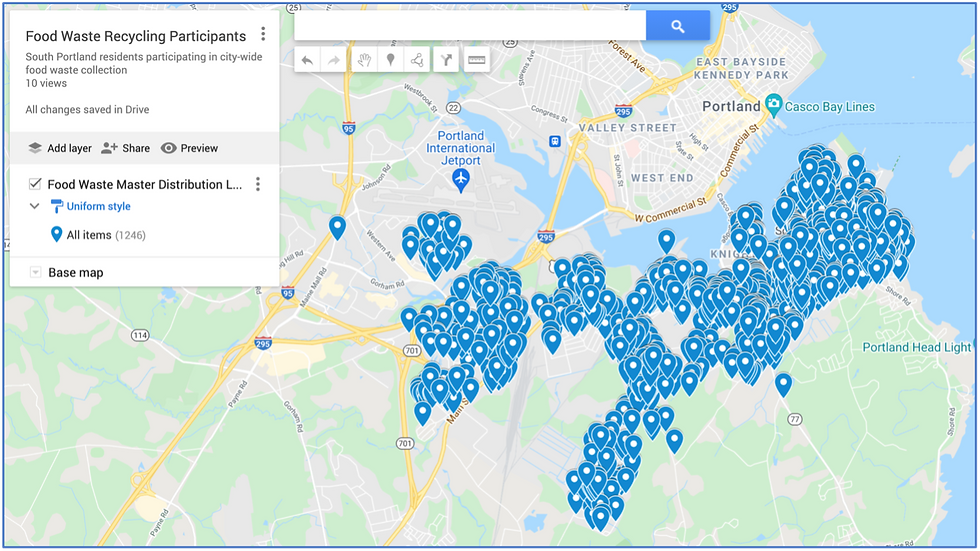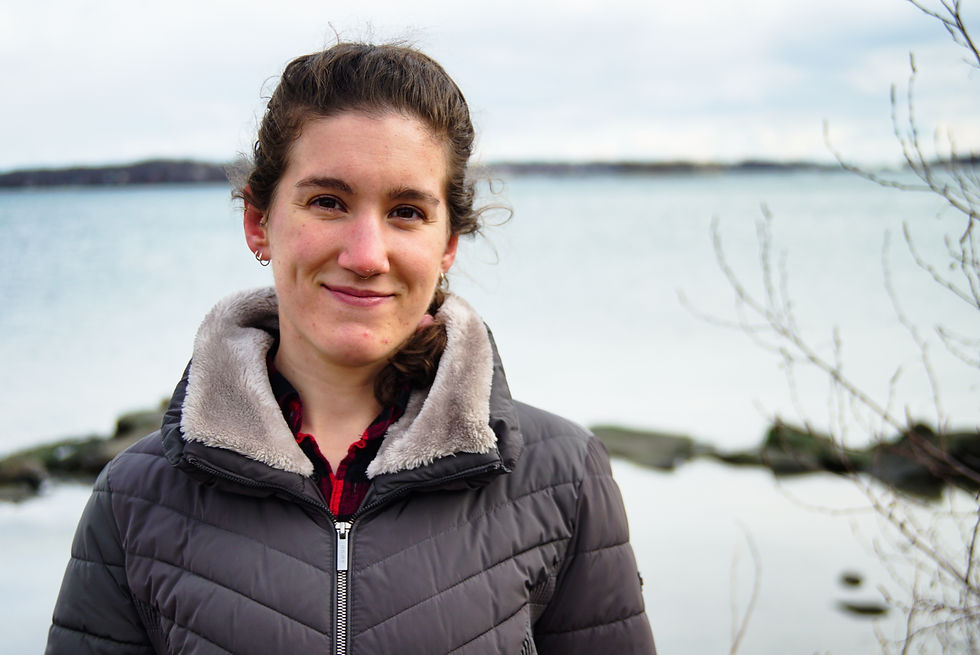Tailoring Waste Management in South Portland
- Maria Guerra

- Aug 20, 2021
- 3 min read
Maria Guerra, Environmental Health Fellow, explores South Portland's various solutions for waste management.
Sustainable solutions do not come in a “one size fits all” format, so having a community take ownership of these changes and adapt them to the unique needs of their members is a powerful way to implement sustainable behaviors. Waste management and reduction is no different, and executing a successful program requires considering how a municipality functions as a whole, as well as within its individual neighborhoods.
Waste reduction can be seen as a balance between incentives, and alternatives: motivate people to scale down the volume of waste they produce, and offer easy, enticing alternatives to throwing it all in the trash can. One method for solid waste management in Southern Maine is the “pay as you throw” program. Residents buy trash bags specific to their municipality, and it helps to cover costs of weekly curbside waste pickup. In this scenario, residents have the fiscal motivation to limit how much they throw away when smaller town trash bags cost less than larger ones, and regular curbside pickup means fewer trips to a local transfer station. But the other side of the coin is giving residents the resources to reduce the amount of material that they have to put in their trash bags each week.
This is where South Portland’s push for food waste recycling becomes a key player. Giving people an option to remove food waste from their weekly trash composition, just as single-stream recycling has been able to, should be reason enough to encourage engagement throughout the city. However, a visual of participant distribution implied otherwise. South
Portland offers residents the option of signing up for a free composting bucket, which can then be emptied into one of five drop-off sites, and after mapping the locations of about 1250 participants in the existing program, it became apparent that the majority of those who have signed up for the free bin were concentrated to the east of Interstate 295. As a Resilience Corps volunteer working in the South Portland Sustainability Office, my goal has been to expand and promote the city-wide food waste recycling program, while focusing on engagement in these areas that have shown lower participation.
Communities on the West End of South Portland have a history of experiencing a disconnectedness from other parts of the city, not only illustrated by obvious physical barriers of limited pedestrian-friendly streets and sidewalks in and out of the area, but also in the demographic makeup of these neighborhoods. According to the South Portland West End Neighborhood Master Plan, the affordable housing units that make up Redbank Village and Brick Hill apartments are most attractive to members of minorities, possibly experiencing poverty, or learning English as a second language. Through understanding these factors behind the isolation of the West End, it may become more clear what distinct obstacles prevent residents from engaging in something like a food recycling program.
It will also reveal what makes these neighborhoods so unique. The West End is equipped with common outdoor and indoor spaces, frequent community gatherings, and information hubs, that support a sense of identity. By working with the strengths of individual communities, perhaps sustainable practices will be more likely to take root in the day-to-day and encourage community ownership of sustainable actions. Neighbors that share information and hold each other accountable may not only increase participation but change the mindset towards sustainability; making a tangible, observable difference right where they live, while building relationships based on shared experience and community pride. Sustainable solutions should not only be designed to improve the quality of our environment, but to be implemented in a way that can be easily sustained by the people putting them into practice. Doing so ensures the longevity of these practices and is a step towards building resilient communities with the tools to reduce solid waste and the long-lasting costs that come with it.

About Maria Guerra

Maria is from Falmouth, Maine, where developed appreciation for the natural resources at hand. She graduated in 2018 from the University of Southern Maine with a bachelor’s degree in Environmental Sciences. While in school, she was an intern with a local land trust that provided hands-on experience in monitoring the effects of land usage on the Presumpscot River. She also learned the importance of volunteer organization in the work of resource conservation. After graduation, Maria was an intern with the Maine Department of Transportation and developed an interest in the impacts of infrastructure on water quality and the connectivity of natural habitats. As a member of the Resilience Corps, she is excited to work with the community she has grown up with and expand her knowledge on current issues Maine people face concerning the quality of the natural environment. Maria looks forward to applying her background in the natural sciences to the Resilience Corps, as well as building upon her experience in community engagement.




A huge amount of junk cannot be disposed and recycled by itself. It is important to hire a professional car junk removal firm for metal scrap or vehicle junk removal in different sectors.